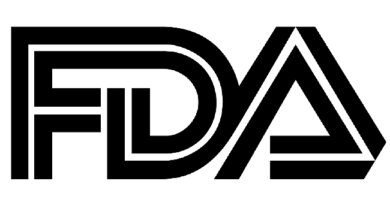FDA Clears Ozanimod (Zeposia) for MS; COVID-19 Delays Launch
[ad_1]
What your doctor is reading on Medscape.com:
MARCH 26, 2020 — The US Food and Drug Administration (FDA) has approved ozanimod (Zeposia, Bristol Myers Squibb) for adults with relapsing forms of multiple sclerosis (RMS), although the company says it will delay launch of the drug because of the ongoing COVID-19 pandemic.
Ozanimod is an oral once-daily immunomodulator that selectively targets sphingosine 1-phosphate 1 (S1P) and five receptors. It’s the first S1P receptor modulator approved by the FDA.
Bristol Myers Squibb announced it will delay commercialization of the drug as the US healthcare system continues to deal with the COVID-19 pandemic.
“The company made the decision based on what’s in the best health interest of our patients, customers, and employees. Bristol Myers Squibb will continue to monitor the environment and will partner with the neurology community to inform launch timing,” they note in a press release announcing the approval.
The FDA approved ozanimod for RMS based on data from the phase 3 SUNBEAM and RADIANCE trials showing the drug reduces disease progression, as reported previously by Medscape Medical News.
Compared with interferon beta-1a (Avonex, Biogen), ozanimod demonstrated a relative reduction in annualized relapse rates of 48% through 1 year in SUNBEAM, and 38% at 2 years in RADIANCE.
At 1 year, treatment with ozanimod reduced the number of T1-weighted gadolinium-enhanced (GdE) brain lesions more than interferon beta-1a (0.16 vs 0.43), a relative reduction of 63%, and reduced the number of new or enlarging T2 lesions (1.47 vs 2.84), a relative reduction of 48%.
Similar findings were seen at 2 years, with greater reductions in the number of T1-weighted GdE brain lesions with ozanimod (0.18 vs 0.37), a relative reduction of 53%, and in new or enlarging T2 lesions (1.84 vs 3.18), a relative reduction of 42%.
There were no statistically significant differences in 3- and 6-month confirmed disability progression between treatment groups over 2 years.
Ozanimod had an “acceptable safety and tolerability” profile in clinical testing, the company notes in the news release. The most common adverse reactions were upper respiratory infection, hepatic transaminase elevation, orthostatic hypotension, urinary tract infection, back pain, and hypertension.
[ad_2]
Source link





cephalexin and breastfeeding side effects
voltaren scherzgel
how to get real estate license in arkansas [url=http://realestatelicensengdfdgh.com]realestatelicensengdfdgh.com[/url] how to start being a realtor realestatelicensengdfdgh.com/states/new-jersey-real-estate-license/ .